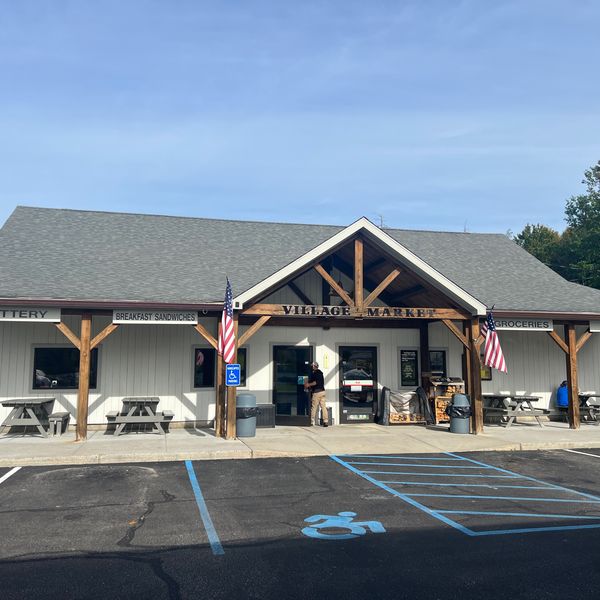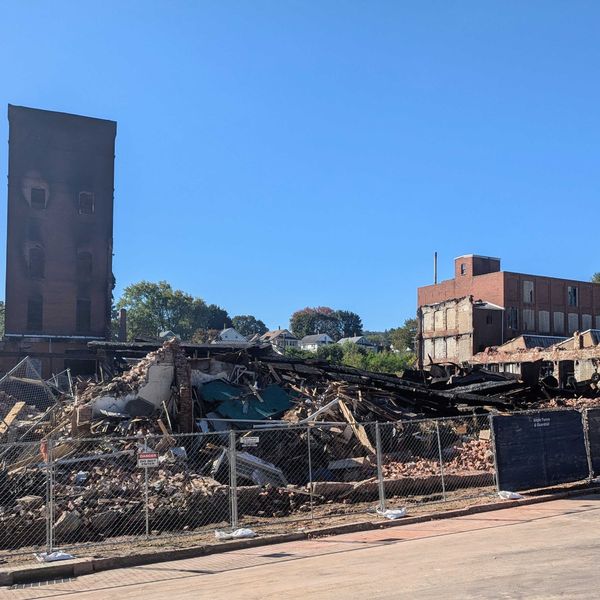Latest News
Barbara Meyers DelPrete
Oct 15, 2025
LAKEVILLE — Barbara Meyers DelPrete, 84, passed away Tuesday, Sept. 30, 2025, at her home. She was the beloved wife of George R. DelPrete for 62 years.
Mrs. DelPrete was born in Burlington, Iowa, on May 31, 1941, daughter of the late George and Judy Meyers. She lived in California for a time and had been a Lakeville resident for the past 55 years.
Survivors, in addition to her husband, George, include son, George R. DelPrete II, daughter, Jena DelPrete Allee, and son Stephen P. DelPrete. Grandchildren; Trey, Cassidy, and Meredith DelPrete, Jack, Will and Finn Allee, and Ali and Nicholas DelPrete.
A Funeral Mass was held at St. Mary’s Church, Lakeville, on Saturday, Oct. 4. May she Rest in Peace.
Ryan Funeral Home, 255 Main St., Lakeville, is in care of arrangements.
To offer an online condolence, please visit ryanfhct.com
Keep ReadingShow less
Shirley Anne Wilbur Perotti
Oct 15, 2025
SHARON — Shirley Anne Wilbur Perotti, daughter of George and Mabel (Johnson) Wilbur, the first girl born into the Wilbur family in 65 years, passed away on Oct. 5, 2025, at Noble Horizons.
Shirley was born on Aug. 19, 1948 at Sharon Hospital.
She was raised on her parents’ poultry farm (Odge’s Eggs, Inc.).
After graduating from Housatonic Valley Regional High School, she worked at Litchfield County National Bank and Colonial Bank.
She married the love of her life, John, on Aug. 16, 1969, and they lived on Sharon Mountain for more than 50 years.
Shirley enjoyed creating the annual family Christmas card, which was a coveted keepsake.She also enjoyed having lunch once a month with her best friends, Betty Kowalski, Kathy Ducillo, and Paula Weir.
In addition to John, she is survived by her three children and their families; Sarah Medeiros, her husband, Geoff, and their sons, Nick and Andrew, of Longmeadow, Massachusetts, Shelby Diorio, her husband, Mike, and their daughters, Addie, Lainey and Lyla, of East Canaan, Connecticut,Jeffrey Perotti, his wife, Melissa, and their daughters, Annie, Lucy and Winnie, of East Canaan. Shirley also leaves her two brothers, Edward Wilbur and his wife Joan, and David Wilbur; two nieces, three nephews, and several cousins.
At Shirley’s request, services will be private.
Donations in her memory may be made to the Sharon Woman’s Club Scholarship Fund, PO Box 283, Sharon, CT 06069.
The Kenny Funeral Home has care of arrangements.
Keep ReadingShow less
Veronica Lee Silvernale
Oct 15, 2025
MILLERTON — Veronica Lee “Ronnie” Silvernale, 78, a lifelong area resident died Tuesday, Oct. 7, 2025, at Sharon Hospital in Sharon, Connecticut. Mrs. Silvernale had a long career at Noble Horizons in Salisbury, where she served as a respected team leader in housekeeping and laundry services for over eighteen years. She retired in 2012.
Born Oct. 19, 1946, at Camp Lejeune, North Carolina, she was the daughter of the late Bradley C. and Sophie (Debrew) Hosier, Sr. Following her graduation from high school and attending college, she married Jack Gerard Silvernale on June 15, 1983 in Millerton, New York. Their marriage lasted thirty-five years until Jack’s passing on July 28, 2018.
Ronnie is survived by her daughter, Jaime Silvernale (Wm. MacDaniel, Sr.) of Millerton, her beloved grandson, Wm. MacDaniel, Jr.; two special nieces, Shannon and Rebecca and a special nephew Sean Hosier. In addition to her parents and husband, she was predeceased by her brother, Bradley C. Hosier, Jr. and her dear friend Ruth Fullerton of Millerton.
Visitation was private. A celebration of Ronnie’s life will be held in the future. Arrangements have been entrusted to the Scott D. Conklin Funeral Home, 37 Park Avenue, Millerton, NY 12546. To send an online condolence to the family or to plant a tree in Ronnie’s memory, please visit www.conklinfuneralhome.com
Keep ReadingShow less
Crescendo launches 22nd season
Oct 15, 2025
Christine Gevert, artistic director of Crescendo
Steve Potter
Christine Gevert, Crescendo’s artistic director, is delighted to announce the start of this musical organization’s 22nd year of operation. The group’s first concert of the season will feature Latin American early chamber music, performed Oct. 18 and 19, on indigenous Andean instruments as well as the virginal, flute, viola and percussion. Gevert will perform at the keyboard, joined by Chilean musicians Gonzalo Cortes and Carlos Boltes on wind and stringed instruments.
This concert, the first in a series of nine, will be held on Oct. 18 at Saint James Place in Great Barrington, and Oct. 19 at Trinity Church in Lakeville.
For those unfamiliar with Crescendo, the award-winning organization was founded in 2003 and brings lesser-known works from the Renaissance and Baroque periods — along with contemporary fusion pieces — to new life. Its performances often blend classical composition with nontraditional instrumentation for a refreshing new take on an established body of work.
Gevert, who is German, Chilean and American, is a conductor, keyboardist and musical scholar. As the multi-national, multi-lingual (German, Spanish and English) creative director, she is a veritable whirlwind of talent, professionalism and inspiration who conceives of new musical treats for her audiences. She also hires and nourishes local talent, sources internationally known vocal and instrumental professionals, and provides her audiences with well-researched program notes for each concert, packaged in lush, full-color programs that resemble illuminated manuscripts.
“It is the excitement about and dedication to the music, along with the prerequisite vocal and instrumental talent, that characterizes a Crescendo member,” said Gevert. “I don’t care about things like how old or young you are or where you’re from — it’s all about bringing these performers together to provide unforgettable musical experiences for its audiences.”
“Traditional audiences for classical music performances tend to skew older,” Gevert continued. “For that reason, I’ve embarked on an effort to reach younger listeners, and have done things like taken a Crescendo choral group to perform at Housatonic Regional High School. I’ve also launched an effort to recruit and train young singers in Baroque singing techniques so they can perform with our existing choral group.”
The upcoming 2025-26 season includes, among other performances, a solo recital and benefit concert on Nov. 22 by the international Baroque opera star and countertenor Nicholas Tamagna. The curated program will include works by Handel, Vivaldi, and Monteverdi.
Two dazzling Christmas concerts follow: on Dec. 6 and 7, Crescendo presents J.S. Bach’s “Sweet Comfort” cantata and Mass in G minor, featuring the full chorus and soloists with a period instrument orchestra. On Dec. 21, the annual Holiday Concert will be presented: “A Tapestry of Traditions: Unraveling the History of Christmas Carols,” with the entire Crescendo vocal ensemble and Gevert on organ.
For the full schedule, concerts details and ticket information, visit: www.crescendomusic.org
Keep ReadingShow less
loading








